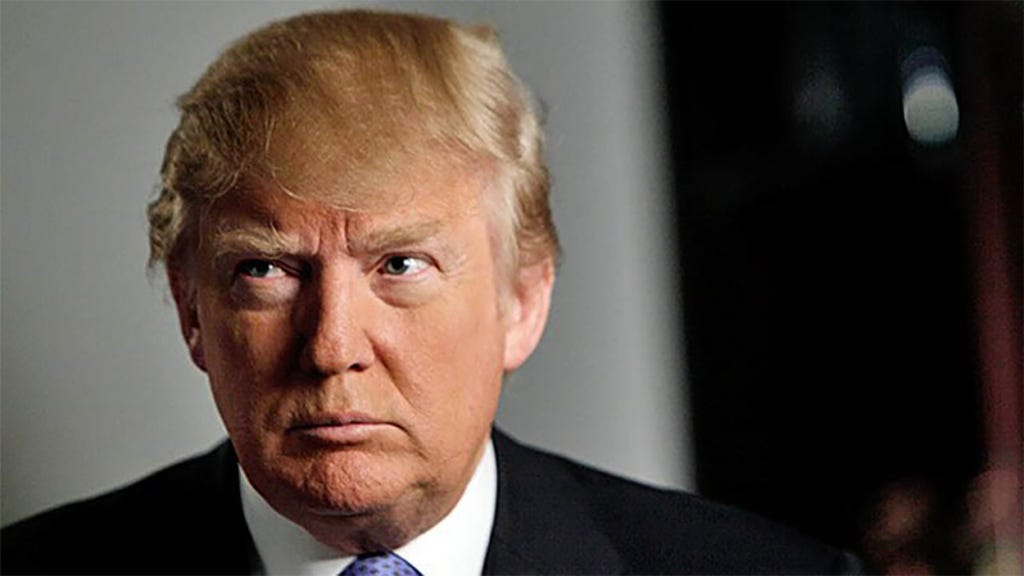As it turns out, Donald Trump isn't quite as repulsed by the Washington establishment as he had led us to believe throughout the campaign. As president (in just the past few weeks alone), he has managed to abandon much of the populist sentiment that many believe handed him the election, and instead has embraced traditional D.C. approaches on a host of issues.
As Steve Bannon's White House influence quickly diminishes — to the beat of fervent nationalists (who've been decrying "globalists" and "neocons" for the past two years) suffering through a hysterical identity crisis — it will be interesting to see what other positions our president waffles on.
So far, we've seen sharp reversals on Syria (and broader foreign policy), NATO, universal health care, the Ex-Im Bank, Chinese currency, and Federal Reserve Board Chair Janet L. Yellen.
We've also witnessed a far less accommodating tone on Russia, and a rapid downplaying of expectations for the border wall with Mexico.
Axios's Mike Allen, who refers to the phenomenon as "Operation Normal," offered an interesting take on Trump's political transformation in a recent piece:
"Trump goes where the applause is loudest. If that means being a full-throated birther, fine! If that means inciting hysterics about Mexicans, game on! If that means hugging NATO or smiling at corporate cronyism, Trump's your man! It would be a hoot if he came full circle and morphed into Michael Bloomberg."
While I'm not sure that turning into Bloomberg would constitute a "full circle" maneuver for Trump, Allen's theory holds water, and he's far from the first person to make this point.
During the election, for example, Fox News's Greg Gutfeld sometimes referred to Trump as a "rhetorical chameleon." The inference was that the candidate would say anything — no matter how reckless, contradictory, or hypocritical — as long as he thought it could help him at that particular moment.
You see, when Trump was a candidate, it was the voters that were his audience. They were drawn in by his charisma and celebrity, and his populist rhetoric helped win them over. Slogans like "Make America Great Again" and "Drain the Swap," however, aren't guiding principles, and they don't translate into cogent policy.
Incidentally, this is why principles are important, and it's also why many people on the Right were concerned about Trump's expressed lack of them during the primary.
Now that Trump is our president, his audiences are no longer fawning crowds. They are instead his presidential advisors and the responsibilities that come with his job. And without relevant principles to guide him, and with his naivety as a candidate being chased away by the realities of his role as our nation's leader, he's falling back on a standard establishment platform.
That's not necessarily a bad thing. Conventional wisdom has its merits, and "the establishment" isn't always wrong. I'd much prefer that Trump hypocritically do what's right, rather than stubbornly cling to what's wrong. And that's what these recent shifts have reflected.
To his credit, Trump put together a cabinet of competent, knowledgeable people (for the most part anyway). And some of these individuals (establishment or not) have served him particularly well, even appearing to be out in front of him on key issues (see Nikki Haley).
Unsurprisingly, Trump's cheerleaders have been using these flip-flops as an opportunity to once again tout the president's greatness — this time for his willingness to adapt to evolving situations. Of course, these situations haven't exactly evolved. Even the recent chemical weapons attack in Syria was just a continuation of al-Assad's murderous methods.
Jonah Goldberg had it right in a recent piece when he wrote: "The strike on Syria is the single best proof that Trump has no overriding commitment to any ideological position — and I say that as someone who supports the strike. "
What Trump's reliable defenders (including those in the media) can't bring themselves to acknowledge is that these "adaptations" are putting the president's positions remarkably close (in some cases identical) to those held by his primary competitors — the very positions that Trump (and his anti-establishment faithful) absolutely excoriated at the time. This makes it extremely difficult for the Trump Train to continue to insist that they backed our president for his ideas and not simply his persona.
But the fan-base is no longer much of a consideration when it comes to policy (or perhaps they never have been). With Trump having demonstrated that his populist war-cry from the campaign trail was little more than a means to an end (and can be sidelined at a moment's notice), I'd like to go ahead and make a personal request:
Mr. President, let's start treating the National Debt like the catastrophic problem that it is, and do something about our entitlement programs. Sure, you promised not to...but hey, what does that matter?




